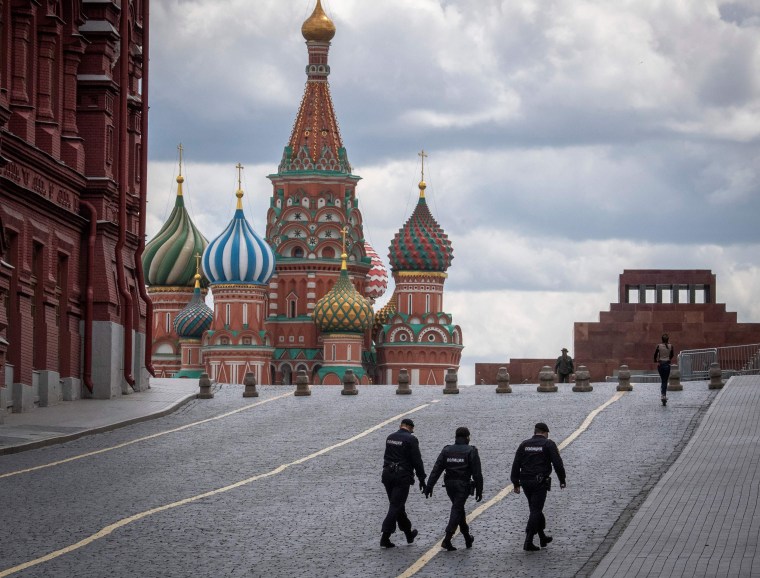Donald Trump never really made an effort to explain his opposition to existing treaties with Russia, but the Republican's pattern was unmistakable.
It was two years ago this week, for example, when Trump announced the U.S. withdrawal from a nuclear arms control treaty with Russia called the Intermediate-Range Nuclear Forces treaty. The INF treaty was largely uncontroversial for decades, but the Republican president abandoned it anyway.
Several months ago, Trump did it again, scrapping U.S. participation in the Open Skies Treaty, which, in the interest of stability and transparency, had empowered the United States and Russia to conduct unarmed surveillance flights over each other's countries.
And then, of course, there was the New START nuclear policy -- originally and successfully negotiated by then-President Barack Obama in his first term -- which was set to expire tomorrow. By all accounts, Trump actually tried to negotiate an extension, but he failed and left President Joe Biden and his team with very little time to work out a solution.
As far as Russia was concerned, officials in Moscow said they'd be happy to extend the treaty for five years without conditions. Yesterday, as NBC News reported, the new administration accepted the offer.
The United States and Russia have extended a crucial nuclear arms control treaty until 2026, Secretary of State Antony Blinken said Wednesday.... Renewing the agreement was one of the first national security challenges facing President Joe Biden's administration.... The move was welcomed by the Russian Embassy in Washington, which said in a statement that the treaty was a "cornerstone of international security." Russian President Vladimir Putin signed a bill extending the treaty Friday after both houses of the Russian parliament voted unanimously to extend it.
"Especially during times of tension, verifiable limits on Russia's intercontinental-range nuclear weapons are vitally important," Blinken said in a statement, adding that extending the treaty has made "the world safer."
That's clearly true. As Sen. Chris Murphy (D-Conn.), a member of the Senate Foreign Relations Committee, explained, "This is good news. If New START had not been extended, it could have been the end of decades of arms control diplomacy between the U.S. and Russia." It's also why, as Politico reported a while back, advocates for its renewal were "arguing in increasingly strident terms that dire consequences" would follow if the treaty were allowed to expire.
As of yesterday, those fears have evaporated.
As for whether this may help create some diplomatic momentum, there's reason for at least some cautious optimism. Referring to the Open Skies policy, the Associated Press reported yesterday that Russia "may consider returning to an international pact allowing surveillance flights over military facilities," so long as the Biden administration reverses Trump's 2019 decision.
"If the United States fully returns to observing the treaty, the Russian Federation would be ready to constructively consider that new situation," Russian Foreign Minister Sergey Lavrov said.
Watch this space.

